WISER final conference - Presentations
25-26 January 2012 Tallinn, Estonia
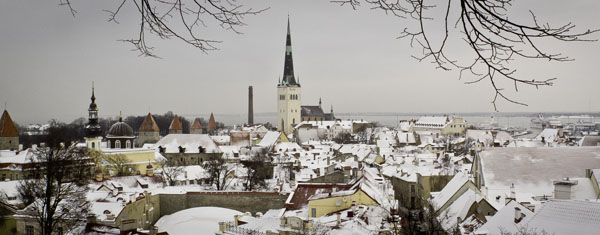
Presentations
Wednesday 25, day 1: Assessment, Monitoring and Uncertainty
Altogether eight sessions have addressed the most recent advances in lake, estuarine and marine bioindication using the WFD organism groups. The assessment systems were presented in the light of uncertainty connected to spatial, temporal and researcher-dependent sources of variability.
| Overview and outcome of WISER, future research needs and obstacles (Daniel Hering, University of Duisburg-Essen, Essen, Germany) |
Website(s): www.uni-due.de/aquatic_ecology/ www.freshwaterecology.info |
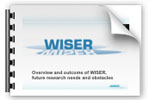 Download pdf (3mb) Download pdf (3mb) |
| Integration of intercalibration into River Basin Management (Ursula Schmedtje, European Commission, DG Environment, Brussels, Belgium) |
Website(s): water.europe.eu |
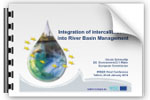 Download pdf (1.2mb) Download pdf (1.2mb) |
| Methods and results of lake assessment (Anne Lyche Solheim, Norwegian Institute for Water Research Oslo (NIVA), Norway) |
Website(s): www.niva.no |
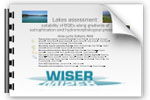 Download pdf (3mb) Download pdf (3mb) |
| Methods and results of transitional/coastal water assessment (Angel Borja, AZTI-Tecnalia Foundation, Spain) |
Website(s): www.azti.es |
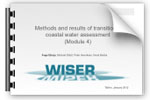 Download pdf (4mb) Download pdf (4mb) |
| Sources of uncertainty in lake and transitional/coastal water assessment (Mike Dunbar, Natural Environment Research Council, Centre for Ecology & Hydrology, UK) |
Website(s): bournemouth.ac.uk www.ceh.ac.uk |
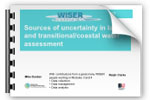 Download pdf (1.7mb) Download pdf (1.7mb) |
| Combination of Biological Quality Elements towards complete water body assessment (Wouter van de Bund, European Commission, Joint Research Centre, Ispra, Italy) |
Website(s): www.jrc.ec.europa.eu |
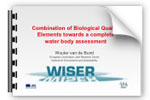 Download pdf (2.6mb) Download pdf (2.6mb) |
| Comparison of assessment across rivers, lakes and transitional/coastal waters (Richard Johnson, Swedish University of Agricultural Sciences, Uppsala, Sweden) |
Website(s): www.slu.se |
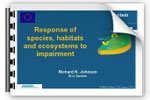 Download pdf (4.2 mb) Download pdf (4.2 mb) |
| Conceptual links between the WFD and the Marine Strategy Framework Directive (Laurence Mee, Scottish Association for Marine Science, UK) |
Website(s): www.knowseas.com www.smi.ac.uk |
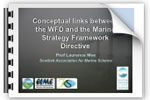 Download pdf (13.7mb) Download pdf (13.7mb) |
| Tales from the riverbank: separating the myths from the reality of river restoration (Guy Woodward, Queen Mary University of London, UK) |
Website(s): www.sbcs.qmul.ac.uk |
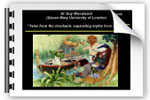 Download pdf (6mb) Download pdf (6mb) |
Thursday 26, day 2: Restoration and Climate Change
Best practice management options targeting at different water types and stressors were presented and discussed in the light of potential effects of climate change.
| River Basin Management Plans - experiences and outlook (Peter Kristensen, European Environmental Agency [EEA], Denmark) |
Website(s): www.eea.europa.eu www.eea.europa.eu/themes/water/interactive/soe-wfd/wfd-surface |
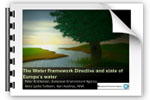 Download pdf (2.7mb) Download pdf (2.7mb) |
| River management, restoration and the impact of global and climate change (Christian Feld, University of Duisburg-Essen, Essen, Germany) |
Website(s): www.uni-due.de/aquatic_ecology |
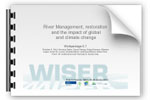 Download pdf (2.5mb) Download pdf (2.5mb) |
| Lake management, restoration and the impact of global and climate change (Erik Jeppesen, Aarhus University, National Environmental Research Institute [NERI], Denmark, Denmark) |
Website(s): www.dmu.dk |
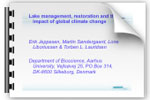 Download pdf (5.9mb) Download pdf (5.9mb) |
| Transitional/coastal water management, restoration and the impact of global and climate change (Jacob Carstensen, Aarhus University, National Environmental Research Institute [NERI], Denmark) |
Website(s): www.dmu.dk |
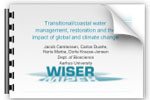 Download pdf (2.6mb) Download pdf (2.6mb) |
| Enhancing and Improving Monitoring and Assessment in the United States (Sarah Lehman, U.S. Environment Protection Agency) |
Website(s): www.epa.gov NARS Office of Water Climate Change EPA Climate Change |
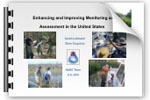 Download pdf (1.3mb) Download pdf (1.3mb) |
| Comparison of recovery processes in rivers, lakes and transitional/coastal waters (Piet Verdonschot, ALTERRA Wageningen, The Netherlands) |
Website(s): www.alterra.nl |
 Download pdf (2.4mb) Download pdf (2.4mb) |
| Lessons learned from large-scale coastal ecosystem restoration: more synthetic and strategic planning needed (Charles “Si” Simenstad, University of Washington, Seattle, USA) |
Website(s): fish.washington.edu |
 Download pdf (8.6mb) Download pdf (8.6mb) |